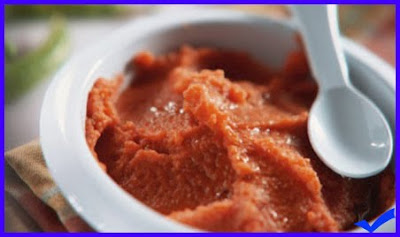Is infant cereal (also known as baby rice) the best first food for baby? Are there alternatives to baby rice that may be a better option?

Why is baby rice so commonly introduced as baby's first food?
Well, there are several reasons - the main one being that it is the first food most frequently recommended to parents by pediatricians and medical professionals.
There is also an element of tradition - after all, it was the first food that many of US received as babies and offering baby rice has become established and widely accepted as the 'norm' when transitioning infants to solids.
So WHY has infant rice cereal always been considered the best first food for baby?
* It is relatively bland in taste - some experts say that this makes it more acceptable to babies because - when mixed with breast milk or formula - it tastes familiar to them.
* You can mix it to a fairly thin texture, which is believed to be ideal for babies making the transition from an all-liquid diet to a more solid one.
* It provides necessary iron - most baby rice is iron-fortified to boost babies' levels of this essential dietary element at a time when they become depleted (around 6 months of age).
* It is believed to be relatively non-allergenic, making it a safer option as a first food.
* It is said to be very easily digested.
* It is believed - by some - to help babies sleep through the night by keeping their tummies full for longer.
* It is gluten free, meaning that it can be given to babies under 6 months of age (please see this page for more information about gluten).
For quite some time, these reasons for introducing baby rice before other foods have not been greatly challenged - indeed, infant cereal is still one of the most popular weaning foods in the developed world.
More recently, however, parents are 'reading up' on infant nutrition and questioning commonly held beliefs regarding feeding practices. With more information available - and parents being able to 'compare notes' via the internet - they are more likely to challenge pediatric advice regarding solid feeding issues than ever before.
Furthermore, the previously held notion that anything in a packet marketed for babies is automatically a healthy choice is beginning to fade away... and many parents have doubts over the necessity of those little packs of commercially prepared baby rice.
Read More

Why is baby rice so commonly introduced as baby's first food?
Well, there are several reasons - the main one being that it is the first food most frequently recommended to parents by pediatricians and medical professionals.
There is also an element of tradition - after all, it was the first food that many of US received as babies and offering baby rice has become established and widely accepted as the 'norm' when transitioning infants to solids.
So WHY has infant rice cereal always been considered the best first food for baby?
* It is relatively bland in taste - some experts say that this makes it more acceptable to babies because - when mixed with breast milk or formula - it tastes familiar to them.
* You can mix it to a fairly thin texture, which is believed to be ideal for babies making the transition from an all-liquid diet to a more solid one.
* It provides necessary iron - most baby rice is iron-fortified to boost babies' levels of this essential dietary element at a time when they become depleted (around 6 months of age).
* It is believed to be relatively non-allergenic, making it a safer option as a first food.
* It is said to be very easily digested.
* It is believed - by some - to help babies sleep through the night by keeping their tummies full for longer.
* It is gluten free, meaning that it can be given to babies under 6 months of age (please see this page for more information about gluten).
For quite some time, these reasons for introducing baby rice before other foods have not been greatly challenged - indeed, infant cereal is still one of the most popular weaning foods in the developed world.
More recently, however, parents are 'reading up' on infant nutrition and questioning commonly held beliefs regarding feeding practices. With more information available - and parents being able to 'compare notes' via the internet - they are more likely to challenge pediatric advice regarding solid feeding issues than ever before.
Furthermore, the previously held notion that anything in a packet marketed for babies is automatically a healthy choice is beginning to fade away... and many parents have doubts over the necessity of those little packs of commercially prepared baby rice.
Read More
No comments:
Post a Comment